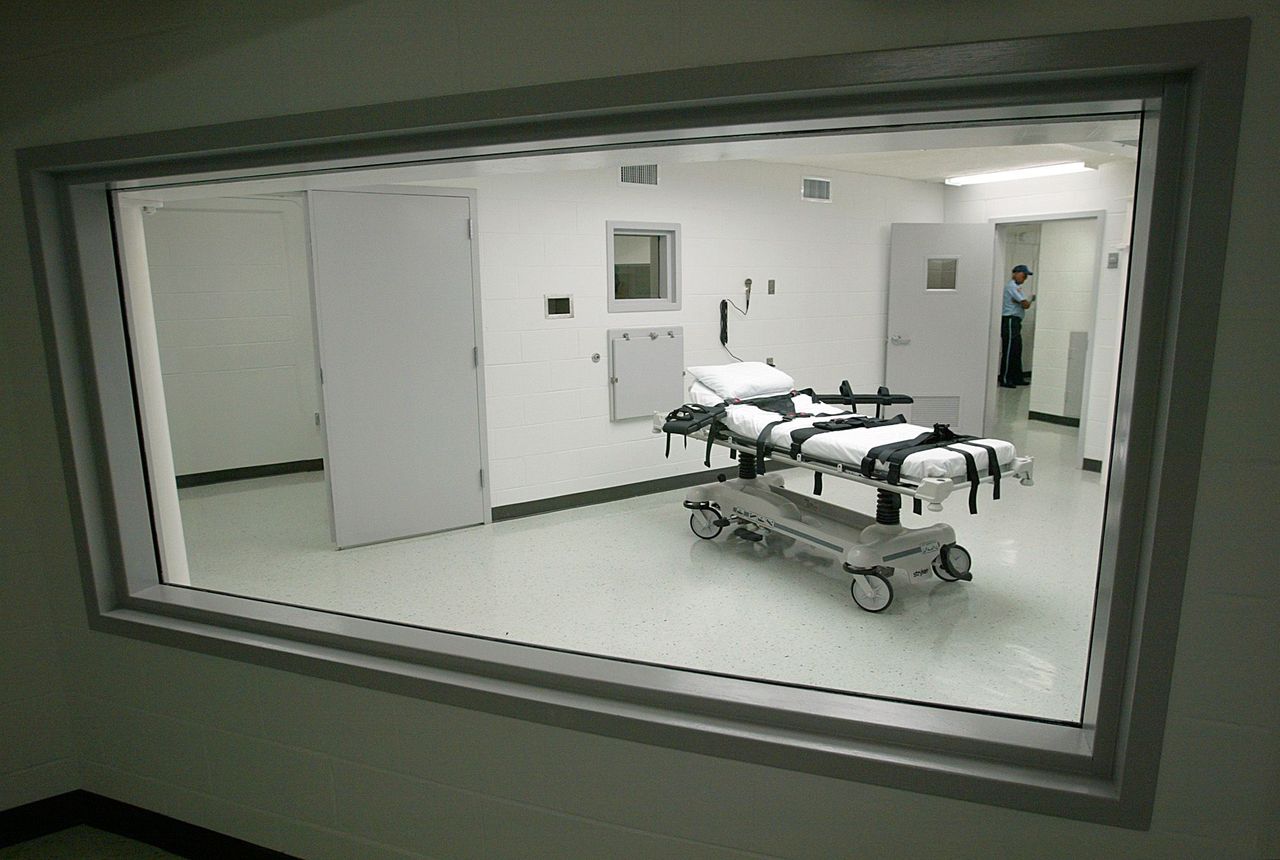Roy S. Johnson: Gov. Ivey’s execution moratorium is indeed chance to ‘get it right’, or end them
This is an opinion column.
So we’re not executing anyone anytime soon. Alabama killed two people last year by lethal injection method but failed miserably in two other attempts. So badly the state gained yet more embarrassing national attention for its ineptitude.
We were among the stars of “The Year of the Botched Executions,” a report by the Washington, D.C.-based Death Penalty Information Center that noted seven of the 20 execution attempts in the U.S. in 2022 were a mess—either visibly excruciating or they took far too long.
In November, Gov. Kay Ivey put a moratorium on executions by lethal injections until a “top to bottom” examination of the process was conducted.
“We’ve got to get this right,” she said.
Or, as I’ve said before, not do it at all.
Our state officials are stirring up an elixir of nitrogen hypoxia, a newly approved though still untested execution method where inmates inhale nitrogen until they die from lack of oxygen. It’s approved in other states, though none has tried it.
Alabama being on the cutting edge of this method of death is frightening.
RELATED: Until Alabama can execute responsibly, stop killing
We’re not giving up, to be sure, on lethal ejections. Ivey’s solution seems to be addressing the state’s time restriction on such executions. The clock struck midnight (figuratively) on the two flops in ‘22 because executioners could not get an IV in place and ready to begin before midnight, thus forcing them to end, according to state law.
The governor’s begged the state Supreme court to massage the law with language similarly used in four other states, allowing the Commissioner of Corrections—a relatively toothless role, frankly—to “promptly” order a new execution date if one failed. Now, the state attorney general must apply for a new execution date with the state Supreme Court, essentially returning to the back of the line in a process that could drag on interminably.
Ivey neglected to share that only one of the states with that option actually executes people regularly.
In July 2021, U.S. Attorney General Merrick Garland imposed a moratorium on federal executions while the Justice Department is reviewing its policies.
I could be wrong, but I don’t think anyone is rushing that review. (Check out my colleague Ivana Hrynkiw’s comprehensive look at what is likely to be one of the most heated conversations in the state this year.) National support for executions is waning, the report also noted.
Last year, there were 18 executions in the U.S., the fewest in any pre-pandemic year since 1991. (In 2021, there were 11 executions). Thirty-seven states have banned the death penalty or not carried out an execution in more than a decade. Moreover, the 20 death sentences levied in 2022 were the fewest annually in a half-century—again, excluding the pandemic years.
I’m not naïve. I know where I live. We’re a bloodthirsty state, justifying executions in the name of “justice” for victims of heinous crimes. We defiantly kill people even when the victim’s families are against it.
Last July, Joe Nathan James, Jr. was killed by lethal injection for the 1994 murder of 26-year-old Faith Hall in Birmingham, even though Hall’s two daughters—they were three and six years old when their mother was killed—publicly said they wanted James to serve the rest of life in prison, not be executed.
“Justice has been served for Faith Hall,” Ivey said following the execution. Justice in her eyes, not the family’s
And, oh, we’ve got quite a pipeline looming for when the executions begin anew, by whatever method.
Indeed, we’re No. 1! No state has more people on death row than Alabama — 3.3 people per 100,000 Alabamians. Nevada, the next closest state, has 2.1 death-row inhabitants per 100,000 residents.
We don’t really know what Alabamians actually think about the death penalty because no sound poll has been shared, if conducted at all. While they’re stirring up new methods of death, state leaders should support an independent survey about the practice, allowing all voices—not just the loudest—an opportunity to be heard.
Such a poll could be enlightening. Especially in a state so entrenched in faith.
Now before the most vehement death-penalty advocates pull up their Bible app and speed-scan to the eye-for-an-eye parts, I know. I’ve read them, along with scripture copious scriptures calling for us to love, forgive and judge not. How one feels likely comes down to personal conviction — on whether vengeance is ours. Or not.
We do know this: Jesus asked those without sin to cast the first stone.
Today, he might also add: Or insert the needle.
More columns by Roy S. Johnson
Think guaranteed-income policy isn’t fair? The Birmingham mom may change your mind
We’re saying goodbye to 2022, but can’t shed its legacy of deadly violence
Though my ancestors are listed on Choctaw rolls, tribe won’t let me belong
Put the brakes on illegal street racing foolishness in our killing streets
We’re tired of being mad, thankfully
Miles grad makes largest alum donation in school history, hopes to be catalyst for giving to HBCUs
Roy S. Johnson is a Pulitzer Prize finalist for commentary and winner of the Edward R. Murrow prize for podcasts: “Unjustifiable”, co-hosted with John Archibald. His column appears in The Birmingham News and AL.com, as well as the Huntsville Times, and Mobile Press-Register. Reach him at [email protected], follow him at twitter.com/roysj, or on Instagram @roysj.
